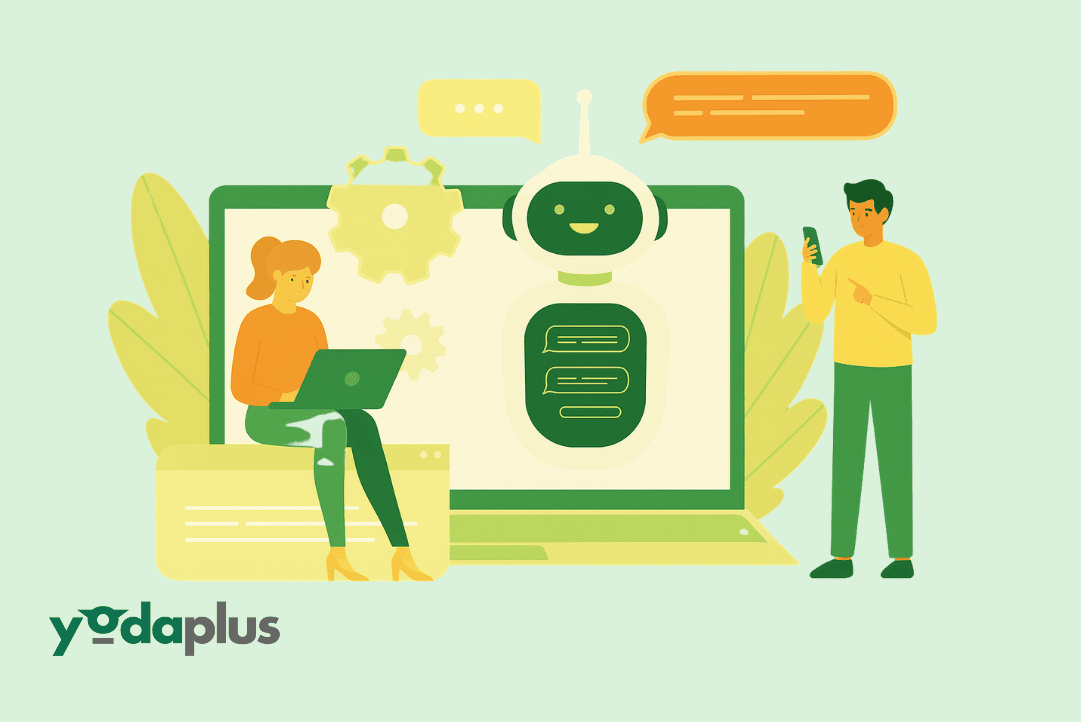
AI Agent Frameworks for Negotiation in Procurement Workflows
August 25, 2025 By Yodaplus
Procurement has always been a critical part of business operations. Companies rely on strong supplier relationships, competitive pricing, and accurate demand forecasts. With the rise of artificial intelligence, the process is changing rapidly. One of the most promising approaches is using AI agent frameworks to manage negotiations and decisions. These systems rely on multi-agent systems and knowledge-based systems to handle tasks that were once done by humans.
What Is an AI Agent Framework in Procurement?
An AI agent is a software entity designed to act on behalf of a user or system. It can understand goals, analyze data, and make decisions. A multi-agent system uses several such agents to work together. In procurement, this means multiple agents can handle supplier quotes, compare contracts, and track inventory levels. These agents are built on artificial intelligence solutions and agentic AI, with capabilities that range from semantic search to vector embeddings that help them process complex data.
AI agent software can connect to databases, supplier platforms, and financial systems. They use machine learning and neural networks to predict outcomes, while natural language processing (NLP) helps them communicate in simple language. These tools work within agentic frameworks that are reliable, scalable, and focused on decision-making.
Why Multi-Agent Negotiation Matters
Procurement workflows involve many decisions. Negotiating with suppliers, checking compliance, and ensuring timely delivery can be overwhelming. Autonomous agents can handle parts of this work. For example, one agent may search for suppliers using semantic search, while another agent checks risk factors using AI-driven analytics. A third may focus on contract terms and suggest changes. Together, these agents create a smooth negotiation process.
This setup is more than just automation. It uses AI-powered automation to improve speed and accuracy. Agents share knowledge through knowledge-based systems, learn over time, and align with company goals. With autonomous AI, they can adjust to new situations and help procurement teams make better decisions.
How AI Agents Work in Procurement Workflows
Here is a simple view of how ai agent frameworks operate:
-
Data gathering: Agents collect information about suppliers, pricing, and demand using semantic search and vector embeddings.
-
Analysis: They apply AI-driven analytics, data mining, and predictive models to assess suppliers and forecast needs.
-
Negotiation: Using agent AI tools, they evaluate terms and generate offers. Conversational AI and crew AI can interact with supplier systems.
-
Decision support: Insights are shared with procurement teams through knowledge-based systems.
-
Continuous learning: These agents evolve by using explainable AI, AI risk management, and self-supervised learning to refine strategies.
Benefits of AI Agent Frameworks in Procurement
-
Speed: Negotiations and approvals happen faster because ai agents work in parallel.
-
Accuracy: AI model training and machine learning reduce errors in supplier evaluation.
-
Transparency: Explainable AI ensures decisions can be reviewed.
-
Scalability: Multi-agent systems can handle larger supplier bases without losing quality.
-
Future-ready: As AI in logistics and AI in supply chain optimization grow, these systems can connect to broader networks.
The Future of Procurement Workflows
Procurement will become even more automated and intelligent. Companies are already using agentic AI for supplier management and AI agent frameworks for planning. The combination of intelligent agents, workflow agents, and knowledge-based systems will allow more strategic decisions.
In the future, reliable AI will manage tasks like sustainability checks, compliance, and supplier risk. Businesses will use prompt engineering to guide agents to deliver better insights. Tools like MCP and crew AI will enhance collaboration across departments. Autonomous systems will become standard in handling repetitive work.
Why Businesses Should Care
Companies that invest in AI applications for procurement will have a competitive edge. They will reduce costs, improve supplier relations, and gain better control over market shifts. For many, understanding what is an AI agent? and its role in procurement is the first step.
The shift is already happening. Artificial intelligence in business is no longer a buzzword. It is a practical tool. Yodaplus Artificial Intelligence Solutions offers frameworks built with autonomous agents and multi-agent systems that are improving procurement today, and those who embrace these technologies will stay ahead.